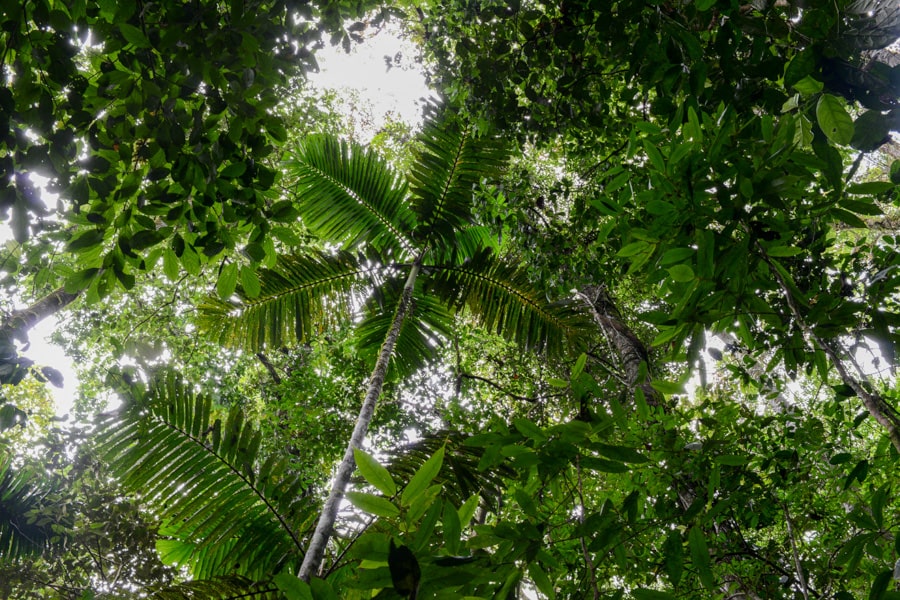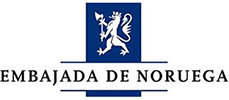Small Grants Initiative
The Community Forestry Program has launched its Small Grants Initiative, in order to start improving the ecological conditions of the project’s plots and generate economic returns from their conservation.
This initiative will run alongside the sustainable harvesting of timber and non-timber forest products, activities which in the long term will strengthen the capacities of local organizations and improve the economy, incentivizing the protection and restoration of intact forest.
The initiative will support actions that contribute to a more appropriate management of existing natural resources in the short term, by intervening in the way those involved in the Forestry Project use their land and by transforming their production systems. This intervention will reduce deforestation and promote the harvesting of timber and non-timber resources from the forest, generating income for the families involved in the Community Forestry program.
Which activities are eligible to receive small grants?
Category 1. Projects for forest enrichment with native species using the framework designed by SINCHI, in areas of at least 2 ha. This type of project requires maintenance activities to be funded in the second and third year. The combination of species can be selected depending on market availability and the conditions at each site. The resources allocated can be spent on:
Timber species
Organic fertilizer kits
Costs of day labor according to need
Plastic posts
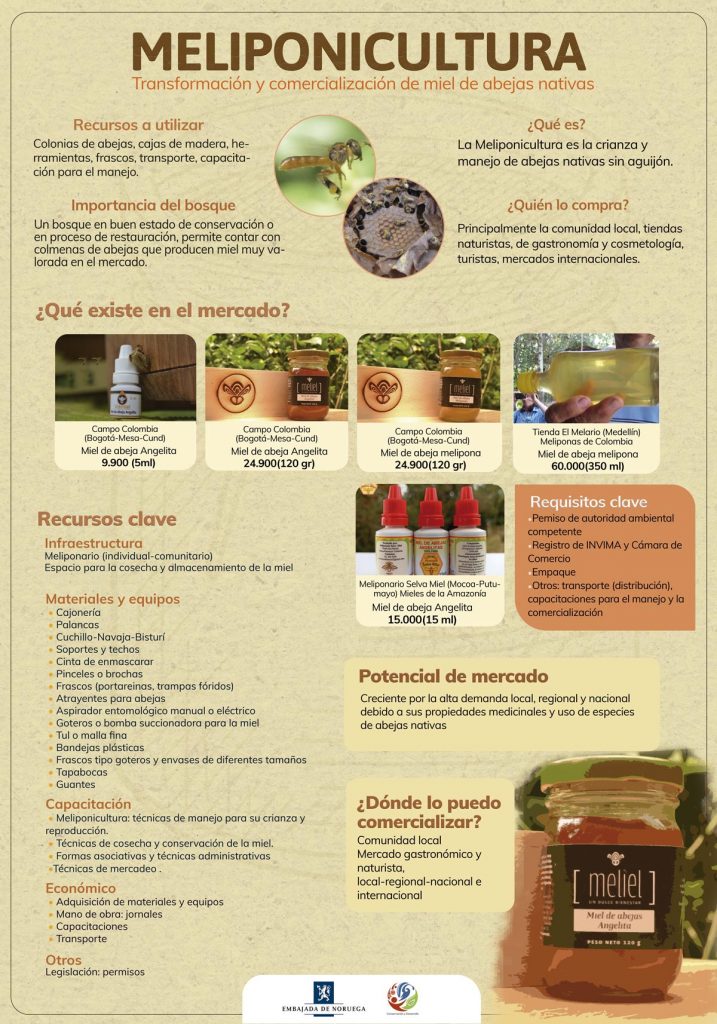
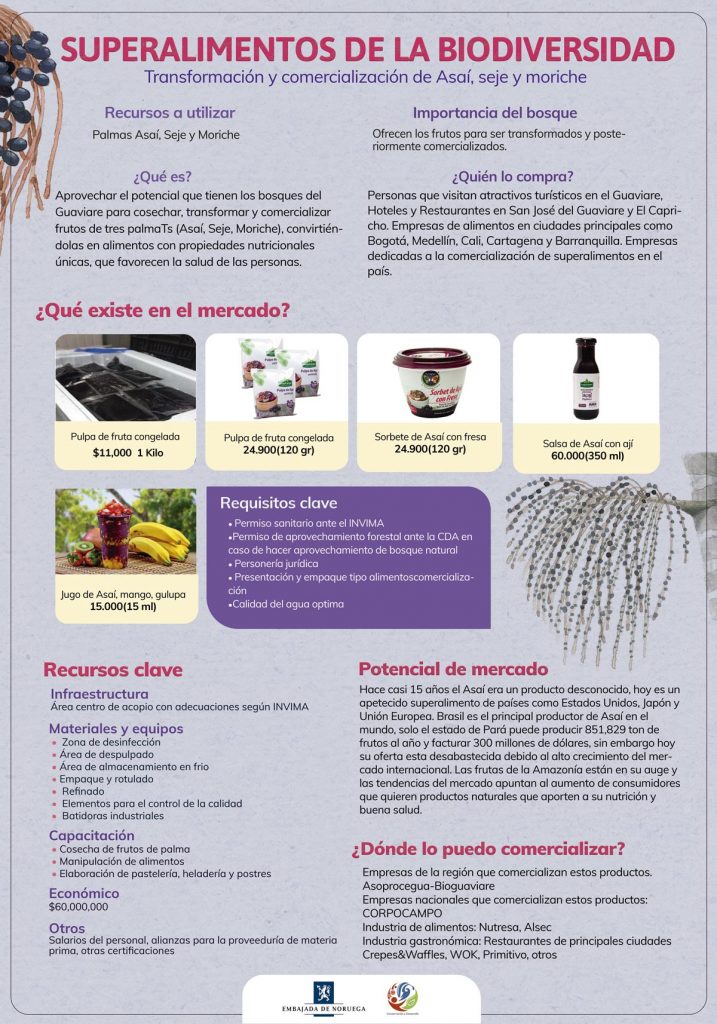
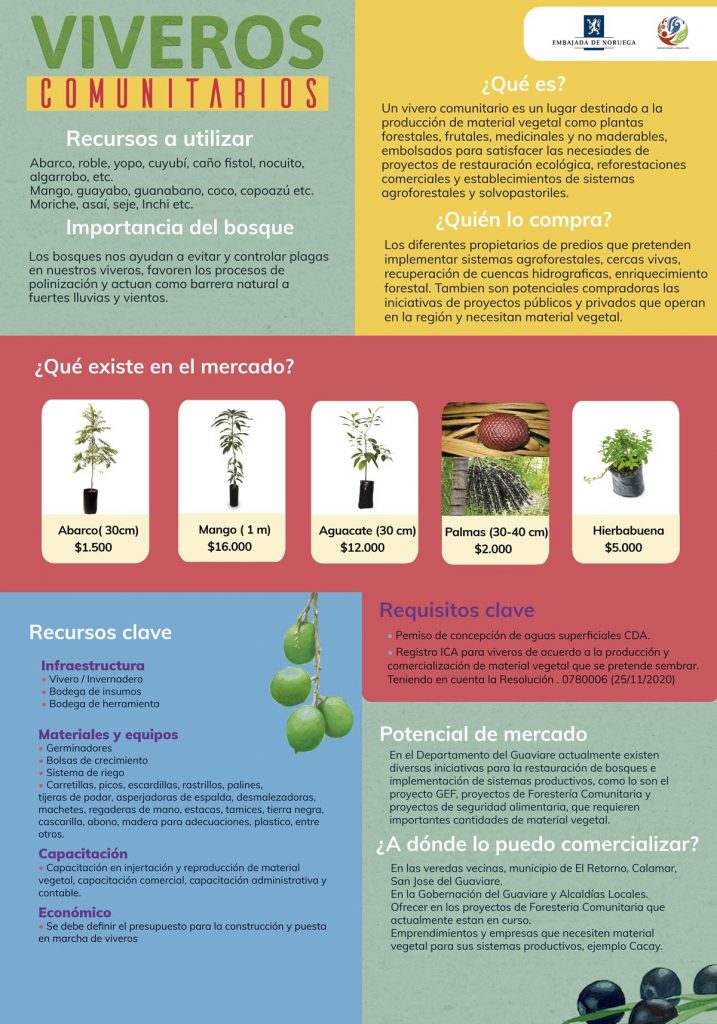
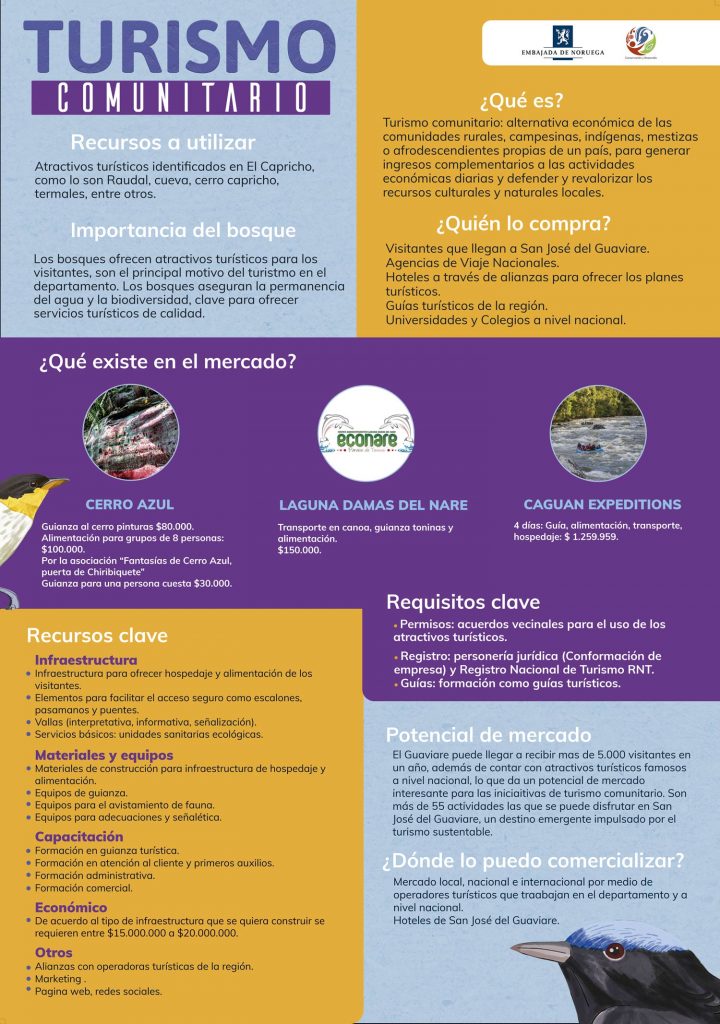
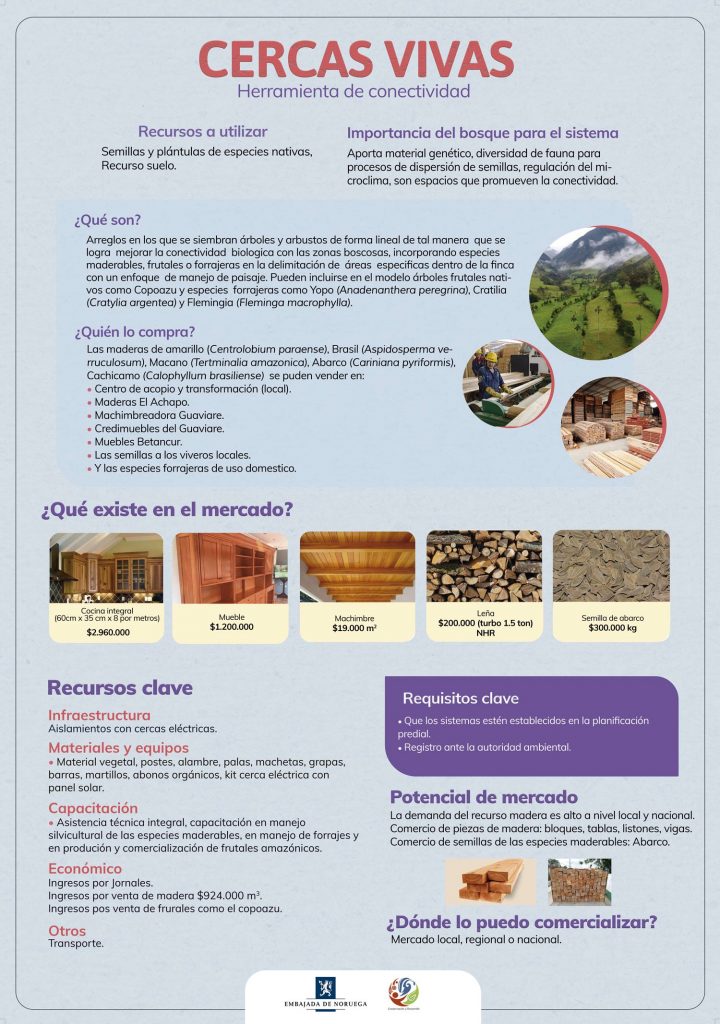
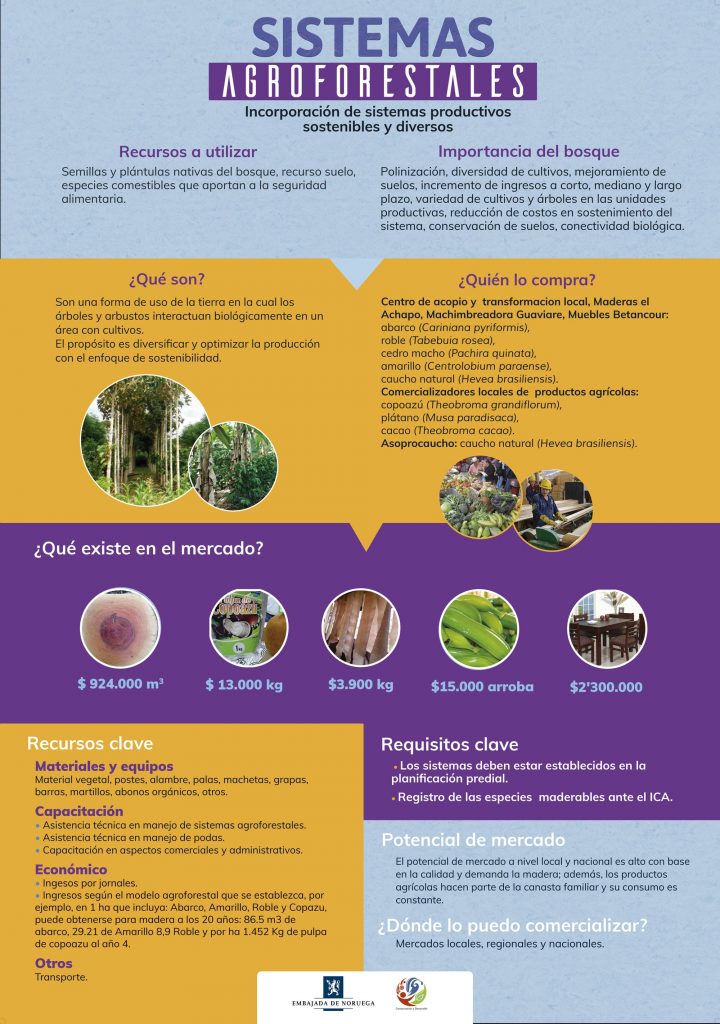
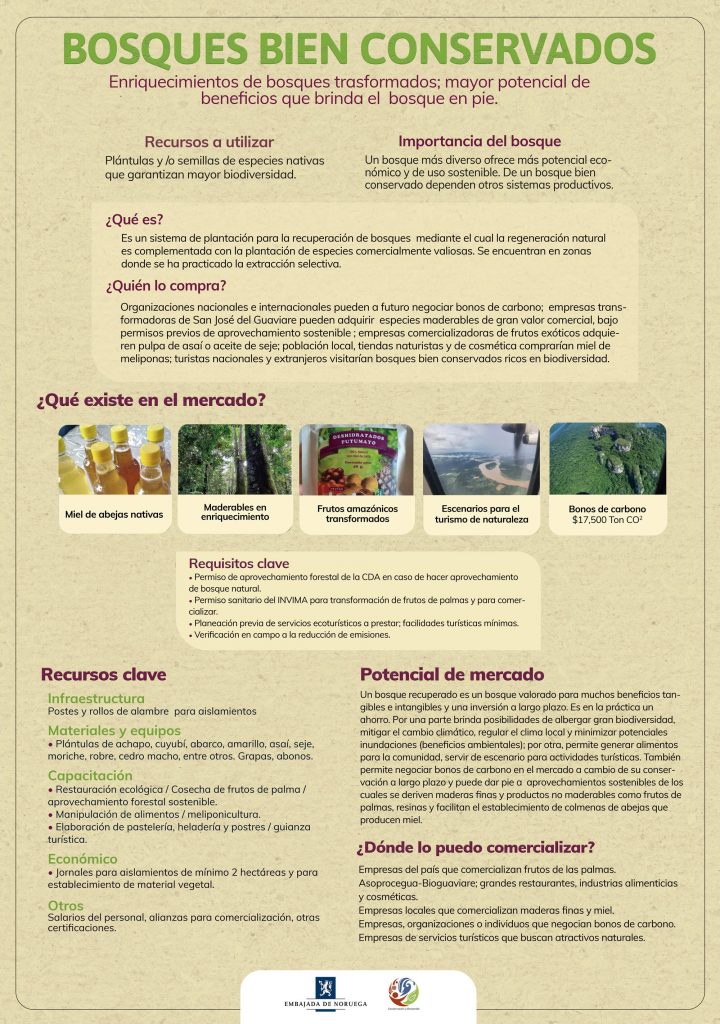
Rolls of wire and other supplies for enclosures
Category 2. The fencing off of strategic areas that promote connectivity and local restoration or landscape-scale conservation. The resources allocated can be spent on:
Plastic poles
Costs of day labor according to need
Rolls of wire and other supplies.
Category 3. Community nurseries for the production of seedlings of timber and non-timber forest species, honey plants (plants for native bee forage), as well as plants related to food security.
There are two types of activities for this category:
Improving existing family nurseries. Improvements will be achieved through the funding of equipment, materials, and technical assistance in the production of plant material.
Improvement of group or communal nurseries that will provide plant material for community use. Improvement will be achieved through the funding of equipment and materials; technical assistance in the production of plant material; construction of infrastructure that complies with the regulations for registration with the ICA; payment of labor costs; and technical, administrative, and economic assistance in the registration process to become a certified supplier under Resolution 078006 of 2020.
Category 4. Implementation of Agroforestry Systems along SINCHI Institute guidelines, in areas of up to 1 ha, which comply with classification and planning restrictions if these exist. Several different models can be implemented that can include different combinations of timber (Colombian mahogany, Colombian oak, muskwood, and araguaney, for example) and species suited for food security (cupuassu, plantain, rubber, or cocoa, and others), and include funding for equipment and labor costs. This type of project requires maintenance activities to be funded in the second and third year.
Category 5. Beekeeping with the Melipona genus or native stingless bees, in which training courses and honey harvesting equipment will be funded.
There are two stages of activities that are eligible for the grant:
First stage: the project will receive funding exclusively for capacity building through training courses in meliponiculture, led by an expert organization.
Second stage: once training is completed, funding will be provided for the assembly of the installations, which include the establishing of honey plant nurseries and the construction of high-tech hives, as well as other equipment for meliponiculture.
Category 6. Planting of mixed living fences as boundary divisions, around the edges of agricultural plots or for the separation of pastures, with a double line of trees for timber, fruit, and fodder production. Labor costs and equipment will be funded. This type of project requires maintenance activities to be funded in the second and third year.
Category 7. Support for family, group, or collective enterprises that process and market non-timber forest products. The project will fund the following example activities:
Acquisition of equipment and materials for the processing of raw materials and food manufacturing (ovens, mixers, stainless steel tables, ice cream equipment, basic solar energy systems, among others).
Acquisition of raw materials of the chosen species from legally constituted suppliers with environmental authority permits, or authorizations to harvest non-timber forest products.
Laboratory analysis, nutritional characterization, and bromatological composition of identified species.
Renovations made to facilities for the production of food or other value-added products in accordance with INVIMA food safety standards.
Category 8. Community ecotourism activities, depending on the results of previous experiences.
Funding will be aimed at strengthening the minimum light infrastructure necessary for the activity to take place, as well as signage and other elements necessary to strengthen the tourism value chain. Promotional campaigns and partnerships with third parties that will accompany or strengthen the social networks can also receive funding.
Category 9. Entrepreneurial capacity building for the different uses of forest products of chosen non-timber and timber species, ecotourism initiatives, and other products such as honey.
This funding category includes activities such as logistical resources to strengthen social capital and to participate in events, trade fairs, business forums, national and international training events, talks, and other efforts aimed at increasing the competitiveness and sectoral integration of timber and non-timber forest products.
